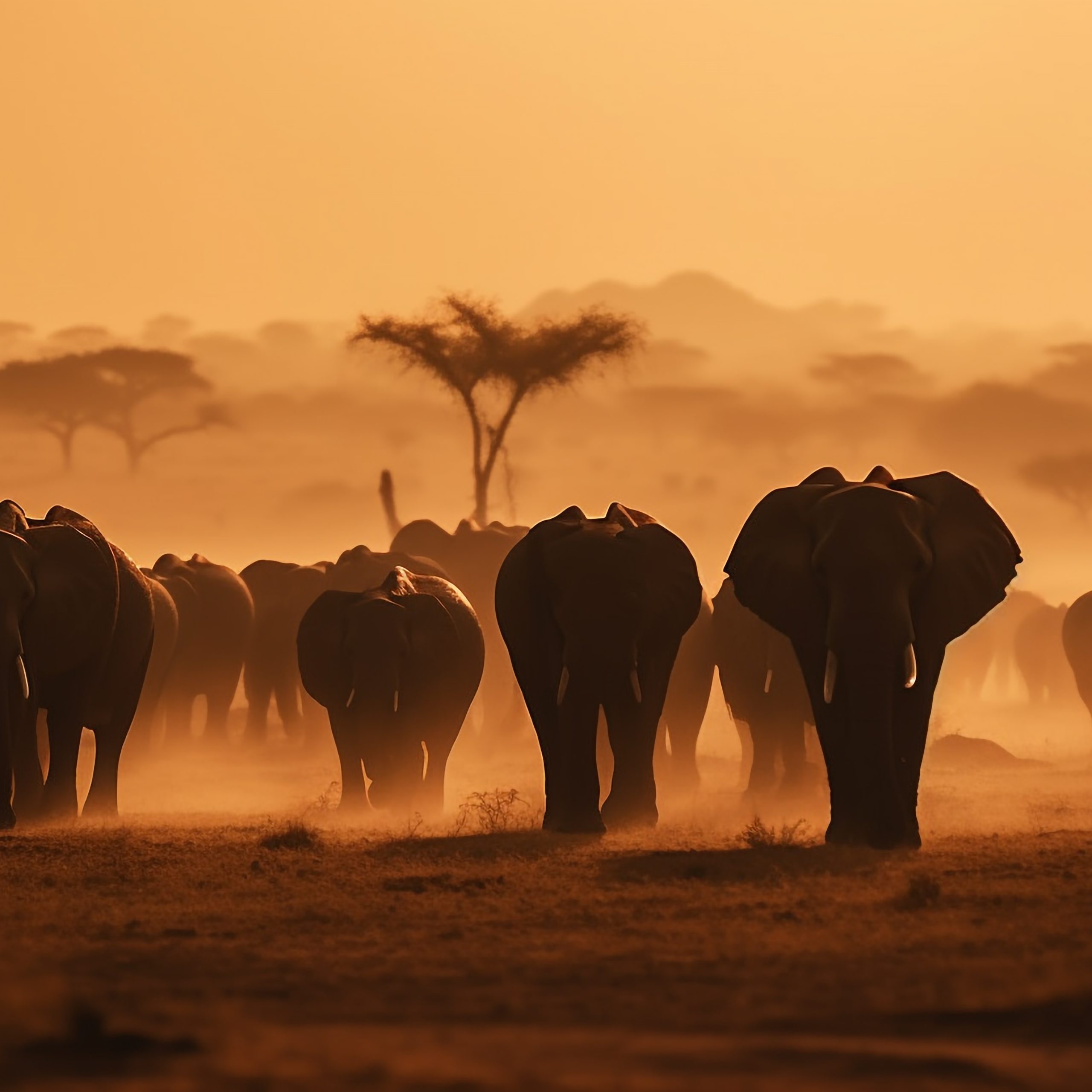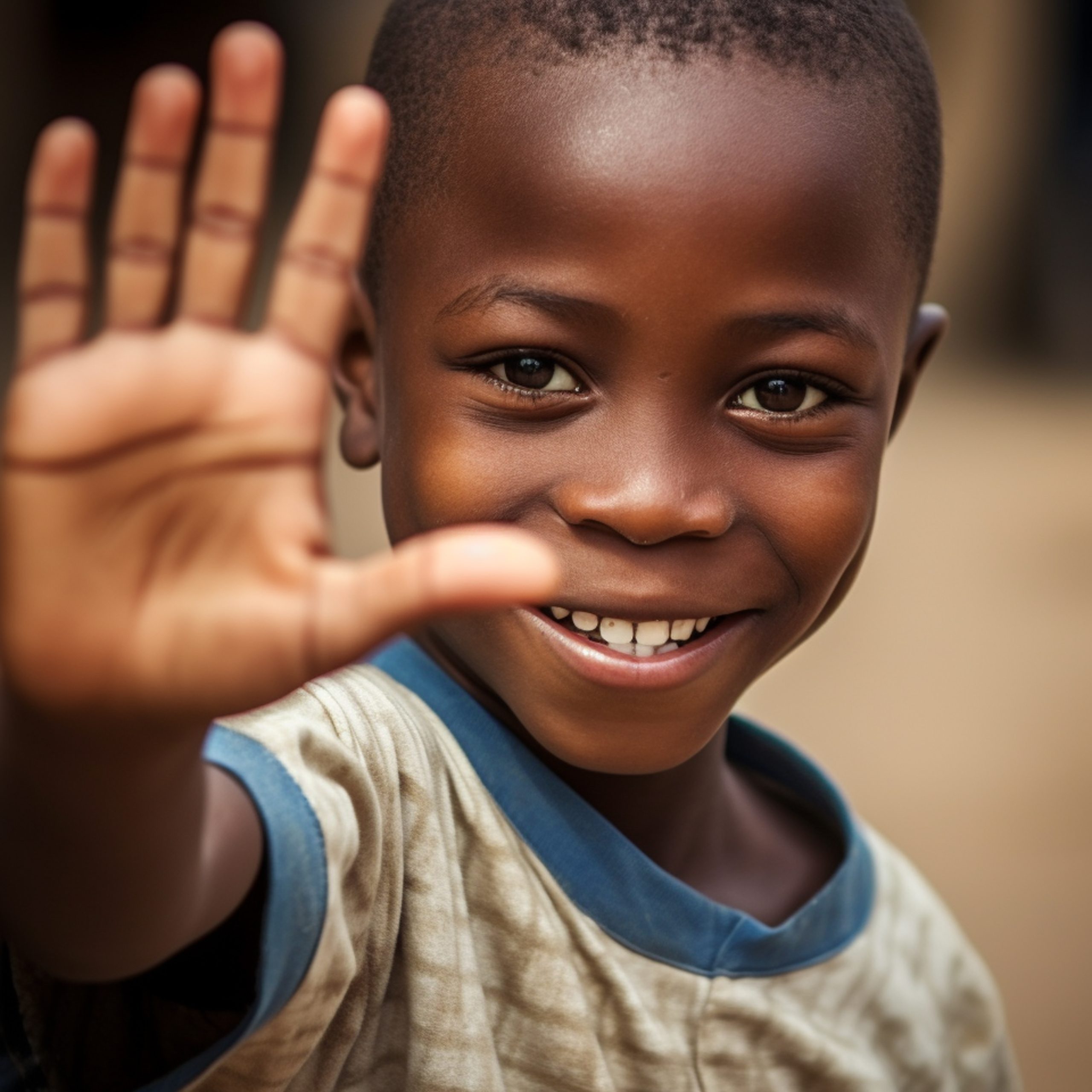Harnessing Sustainable Agriculture in the Heart of Afrcia – A Case Study of climate mitigating small scale Farmers In the DRC
by Eunicia Lutete updated on January 7, 2024
In the verdant heart of Africa, amidst the lush expanse of the Republic Democratic of the Congo (DRC), a remarkable story of resilience and innovation is unfolding. This sprawling nation, covering a vast 2,345,410 square kilometers, is not only renowned for its abundant biodiversity but also for the tenacity of its people, especially its small-scale farmers. In a land where 80 million hectares of arable land and 4 millions hectares of irrigable land beckon, a silent revolution is underway, one that holds the key to mitigating climate change while uplifting millions from poverty.
The DRC, often referred to as the “lung of Africa,” boasts 135 million hectares of tropical forests, covering 52% of its territory. This natural treasure trove has bestowed the country with a unique opportunity: to combat climate change by reducing overall temperatures. Despite these vast resources, the majority of the DRC’s rural population lives under the shadow of poverty, with more than 50% relying on agriculture and livestock for sustenance.
DRC became the solution country to the world due to its tropical forests but also because of small scale farmers that are using sustainable practices to exploit the soil. Small-scale farmers are the unsung heroes of the DRC’s agricultural landscape; they play a pivotal role in mitigating climate change. These resilient individuals, often surviving on less than a dollar a day, demonstrate an unparalleled commitment to sustainable farming practices. Cultivating the land with traditional methods, they eschew the carbon footprints left by modern machinery, opting instead for age-old wisdom passed down from one generation to the next which created an ecosystem of farmers that are boosting the economic growth.
Amidst the challenges, a new breed of farmers is emerging: the agripreneurs. These visionary individuals are not just tilling the land ; they are sowing the seeds of innovation and progress. By harnessing sustainable agricultural practices, they are not only ensuring their survival but also contributing significantly to the country’s economic growth. According to the ANAPI 2022 report, the agriculture sector adds 20.3% to the DRC’s GDP, with an annual growth rate of 2%.

CASE STUDIES :
In the vast and fertile landscapes of the Democratic Republic of the Congo (DRC), small-scale farmers play a crucial role in shaping the agricultural narrative of the nation. These farmers, despite often facing economic challenges, are inadvertently becoming climate warriors through their traditional and sustainable farming practices.
In this large and abundant land, many small-scale farmers from around the country have developed their own sustainable methods to exploit the soil as a way of survival and to provide for their families.
Practices from around the provinces as the level of fertility changes from one area to another, have been mentioned below :
In the Equateur province, small-scale farmers have embraced agroforestry as a means of sustainable land use. By intercropping trees with traditional crops, farmers not only secure their livelihoods but also contribute to carbon sequestration. This practice not only reduces deforestation but also enhances biodiversity and soil fertility. The trees provide shade as the sun strikes harder at the Equator than in the rest of the country. Agroforestry is one way to provide both shelter and also to increase forest landscape.
In the Tshopo province, small-scale farmers employ traditional crop rotation methods. This age-old technique involves changing the type of crops planted in a specific area each season. This not only maintains soil fertility but also prevents soil erosion. By eschewing monoculture, these farmers inadvertently reduce the need for chemical fertilizers and pesticides, thus mitigating environmental degradation.
Moreover, in rural areas such as Nord-Kivu, where water scarcity is a concern, small-scale farmers have implemented rainwater harvesting systems. They collect and store rainwater during the wet season in buckets placed in strategic places to fill it up with rain for use during dry periods where water is hard to find. This not only ensures water availability for their crops but also reduces reliance on rivers and streams, contributing to the preservation of local ecosystems.
Many small-scale farmers across various provinces leverage indigenous agro ecological knowledge passed down through generations to ensure survival of the community. They understand the importance of preserving local seed varieties that are resilient to specific climatic conditions. By avoiding dependence on genetically modified seeds, these farmers inadvertently contribute to biodiversity conservation.

Despite these commendable efforts to mitigate climate change, small-scale farmers in the DRC face numerous challenges, including limited access to modern farming technologies, financial constraints, and insufficient government support. However, there is a growing realization of the need to amplify these sustainable practices and provide the necessary support to the people that pollute less but are facing big consequences from the people on top of the ladder. Congolese small-scale farmers, through their traditional and sustainable farming practices, are inadvertently becoming frontline warriors against climate change. Recognizing, promoting, and supporting these practices can not only enhance food security and economic resilience for these farmers but also contribute significantly to the global fight against climate change.
The success of these initiatives underscores the urgent need for investment in sustainable agriculture. With support from the Government and educating the artisanal farmer in enhanced knowledge of organic farming, the fertile land of DRC can be used to produce healthy organic food not just for local consumption but also for export. Organic foods fetch higher prices than commercially grown and chemically fertilized food produce. This will not only alleviate poverty, but also encourage the people to realize the potential of the land. Modern farming methods and machinery can help DRC become a sustainable agroeconomy. The mighty Congo River and its plentiful supply of freshwater is an added blessing for agriculture in DRC.
The DRC’s artisanal farmers, with their deep-rooted knowledge and innovative spirit, stand as beacons of hope. To truly harness the potential of this agricultural revolution, governmental support, private investment, and international collaboration are imperative.
As the world grapples with the escalating challenges of climate change, the small-scale farmers of the DRC offer a beacon of hope. Their practices, deeply rooted in tradition yet adaptable to the modern world, highlights the path forward. By investing in these climate-mitigating, sustainable farming practices, the DRC can not only combat climate change but also uplift millions from poverty.



